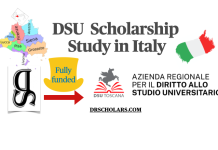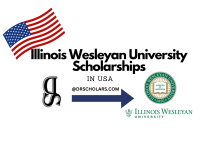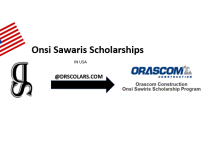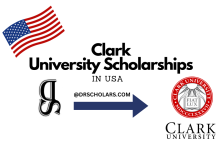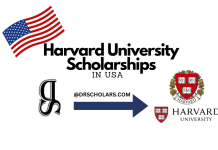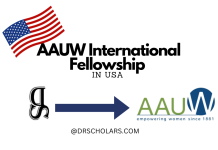Are you looking for an opportunity to complete your research abroad? If yes, then you won’t regret reading this blog. UNSW international research scholarships bring you an opportunity to complete your research in master’s & Phd.
University of New South Wales is a popular research and teaching institution located in Sydney, Australia.
Established in 1949, UNSW has emerged as a prestigious university and is ranked 19th globally overall and joint 2nd in Australia, according to the 2024 QS World University Rankings.
UNSW international research scholarships 2023-24 is a fully funded scholarship for all International students who want to complete their coursework programs. The programs being offered are in Masters and Phd.
This scholarship has a duration of 3.5 years for PhD students and 2 years for research master’s students.
These scholarships include HDR scholarships (Higher degree research) and RTP scholarships which will ensure that financially unstable students complete their research coursework but are not able to do so at the UNSW Sydney.
How to apply for an Australian study visa? check our step-by-step process.
UNSW international scholarships
1. Types of UNSW international research scholarship
2. Additional benefits of UNSW international research scholarships
3. Programs available at the University of South Wales
4. Eligibility criteria for UNSW international research scholarships
5. Which documents are required for the UNSW international research scholarships?
6. How to apply for UNSW international research scholarships?
7. What are the deadlines for UNSW international research scholarships?
8. FAQs about UNSW international research scholarships?
1. Types of UNSW international research scholarship
1.1 Australian Government Research Training Program (RTP)
1.2 University International Postgraduate Award (UIPA)
1.3 Tuition Fee Scholarship plus Research Stipend
1.1 Australian Government Research Training Program (RTP)
Duration: 3.5 years for PhD & 2 years for masters.
Australian government research training program also called the Research training program (RTP) is a scholarship for Phd & master’s.
This scholarship is valued at around $29,863 per year (2023).
For candidates who get selected for the UNSW Canberra, then the scholarship would be around $35,000 per year for them.
International students would receive their Overseas Student Health Cover (OHSC) as well which will help them cover their tuition fees.
This scholarship is completely funded by the Australian government. It also covers the complete tuition fee with a scholarship.
1.2 University International Postgraduate Award (UIPA)
Duration: 3.5 years for PhD & 2 years for masters.
The University International Postgraduate Award (UIPA) is also a fully funded scholarship that is valued at $29,863 per year (2023 rate).
Candidates selected at UNSW Canberra will get $35,000 per year.
1.3 Tuition Fee Scholarship plus Research Stipend
Duration: 3.5 years for PhD & 2 years for masters.
The total value of the Tuition Fee Scholarship (TFS) and Research Stipend is $35,000 per year (flat rate). The cost of tuition is also covered.
The research school or supervisor, UNSW Canberra, provides funding for the stipend.
Everything you need to know about Australia study visa for Pakistan.
2. Additional benefits of UNSW international research scholarships
These scholarships will have some additional benefits as well including tuition fee coverage and stipend per year. These benefits will include:
- Overseas Student Health Cover.
- Relocation Allowance.
- Thesis Allowance.
- Visa processing fee waiver.
- Transport for NSW (TfNSW).
- Travel Concession (at the discretion of TfNSW)
Check flinders university postgraduate scholarship, if you want to study in Australia.
3. Programs available at University of South Wales
UNSW has two universities, one in Sydney and the other in Canberra. You check both universities’ faculty and see which better suits your research.
Shortcuts to programs available at UNSW Sydney:
Official website of UNSW Sydney > Faculties > Check the programs.
Shortcuts to programs available at UNSW Canberra.
Official website of UNSW Canberra > About us > Our schools > Check the program.
Check our ultimate guide about Australia Awards Scholarships.
4. Eligibility criteria for UNSW international research scholarships
Here are the eligibility criteria for the UNSW research scholarships for international students:
- The applicant must be an international student.
- The applicant must have a verified bachelor’s degree.
- It is advised that you discuss prospective stipend financing with your supervisor because Tuition Fee Scholarships (TFS) require funds from your supervisor, school, or faculty.
- Scholarships are given on the basis of the applicant’s research vision, academic record, and previous research experience.
- All documents must be in English or accompanied by an accepted translation.
- Those applicants who are still completing their degree may be evaluated based on their predicted final marks, which must be confirmed once the degree is finished.
- To be eligible for a UNSW HDR Scholarship, applicants must not be receiving an equivalent scholarship or income from any other source, including UNSW and the Australian Government, that covers living expenses and/or tuition fees or is greater than 75% of the primary scholarship rate.
- English proficiency test is a must for studying at UNSW which can be either IELTS, TOEFL, or PTE.
5. Which documents are required for the UNSW international research scholarships?
5.2. Valid passport, Birth certificate & NIC
5.3. English Proficiency (IELTS/TOEFL) for UNSW international research scholarships
5.4. Recommendation letters / Letters of References
5.7. Hope certificate (If applicable)
5.8. Research Plan / Proposal (Optional) for UNSW international research scholarship
5.9. Statement of purpose or Letter of Motivation for UNSW international research scholarships
5.1. Academic documents
This includes all your certificates & academic record:
A: Bachelor’s transcript & certificate
B: Master’s transcript & certificate (if the student is applying for 2nd Master’s or fellowship)
C: Metric & FSC transcripts (10-12th Grade) (A level) (DMCs) and certificates (Supporting academic documents)
D: Course summary (to explain your courses & how your previous courses & studies resemble your future studies to which you are applying)
NOTE:
All of the above documents should be attested by respective boards.
Also, attest them from issuing authority of home countries. The respective university must attest university documents.
In the case of Pakistan, The above-mentioned documents must be attested by IBCC, HEC, and MOFA (Ministry of Foreign Affairs).
IBCC authority is only responsible for the attestation of metric and inter documents.
Dear offices are present in Peshawar, Karachi, Lahore, Islamabad, and also in other cities of Pakistan.
HEC office attests to bachelor’s, master’s, and Ph.D. documents.
5.2. Valid passport, Birth certificate & NIC
- The passport of the applicant must contain at least one full blank page on both sides.
- The passport must be valid at the time of visa application and on arrival to Australia.
- A birth certificate or national ID card is also important to attach.
5.3. English Proficiency (IELTS/TOEFL) for UNSW international research scholarships
Here are the complete English proficiency requirements set by the UNSW international scholarships 2023:
Postgraduate research: Business School, Law & Justice
| Entry Requirements | Direct entry | UEEC 10 Weeks | UEEC 15 Weeks |
| IELTS | 7.0, Writing 7.0
(subscores 6.5) |
6.5, Writing 6.5
(subscores 6.0) |
6.5, Writing 6.0
(subscores 5.5) |
| TOEFL-iBT | 96, Writing 27
(subscores 23) |
90, Writing 25 | 90, Writing 23 |
| Pearson Test of English | 65, Writing 58
(subscores 58) |
64, Writing 58 | 64, Writing 54 |
Undergraduate: Business, Law & Justice
Postgraduate: Business, Law & Justice
Research: Arts, Design & Architecture
| Entry Requirements | Direct entry | UEEC 10 Weeks | UEEC 15 Weeks | UEEC 20 Weeks | EAE 10 Weeks |
| IELTS | 7.0, Writing 6.0
(subscores 6.0) |
6.5, Writing 6.0
(subscores 5.5) |
6.0, Writing 6.0
(subscores 5.0) |
6.0, Writing 5.5
(subscores 5.0) |
5.5, Writing 5.5
(subscores 4.5) |
| TOEFL-iBT | 94, Writing 25
(subscores 23) |
90, Writing 23 | 80, Writing 20 | 75, Writing 18 | 65, Writing 18 |
| Pearson Test of English | 65, Writing 54
(subscores 54) |
64, Writing 54 | 54, Writing 54 | 54, Writing 46 | 46, Writing 46 |
| Cambridge Advanced English | 185, Writing 169 | 176, Writing 169 | 169, Writing 169 | 169, Writing 162 | 162, Writing 154 |
| HKDSE English | 5, Writing 4 | 4, Writing 4 | 3, Writing 4 | 3, Writing 3 | 2, Writing 3 |
Undergraduate & Postgraduate: Arts, Design & Architecture, Engineering, Medicine & Health, Science
Research: Engineering, Medicine & Health, Science
| Entry Requirements | Direct entry | UEEC 10 weeks | UEEC 15 weeks | UEEC 20 weeks | EAE 10 Weeks |
| IELTS | 6.5, Writing 6.0
(subscores 6.0) |
6.0, Writing 6.0
(subscores 5.5, Speaking 5.0) |
6.0, Writing 5.5
(subscores 5.0) |
5.5, Writing 5.5
(subscores 5.0) |
5.0, Writing 5.0
(subscores 4.5) |
| TOEFL-iBT | 90, Writing 23
(subscores 22) |
80, Writing 20 | 75, Writing 18 | 65, Writing 18 | 56, Writing 14 |
| Pearson Test of English | 64, Writing 54
(subscores 54) |
54, Writing 54 | 50, Writing 50 | 46, Writing 46 | 38, Writing 38 |
| Cambridge Advanced English | 176, Writing 169 | 169, Writing 169 | 169, Writing 162 | 162, Writing 162 | 154, Writing 154 |
| HKDSE English | 4, Writing 3 | 3, Writing 3 | 3, Writing 2 | 2, Writing 2 | 2 |
5.4. Recommendation letters / Letters of References
The applicants must provide up to 3 letters of recommendation. from the previous university, (Depending upon courses).
It is advised to provide a letter of recommendation from the HOD (Head of the department or Relevant course head) who should be a PhD.
The referees need to write their contact details (Email, phone number) at the end of the letter.
The letter must include an official letterhead, signature, and official stamp and must be of the current date.
Ask your Referees to write about your academic achievements & discuss their confidence in you that you are fully compatible with the project or course you wish to pursue.
The referees must also mention how long they know the applicant & when was the last time they came in contact with the applicant.
After submitting your application, the referee will be contacted directly through email.
5.5. CV
Europass CV can be easily made here.
The Cv must contain all the latest & relevant information about your occupation & interests.
A perfect CV must be hand signed.
5.6. GRE Score
The GRE score must be 145 in accordance with the new scoring system. The score must be much higher in subjects related to your academic field.
For example, Students with engineering backgrounds must have good scores in Physics, chemistry etc while students of Social science and humanities must have good scores in Verbal subjects.
Note: You can apply for the reimbursement of the GRE fee if you get shortlisted and have an outstanding GRE Score.
5.7. Hope certificate (If applicable)
If the final transcript isn’t ready then students can apply with a Hope certificate from their university.
However, they must graduate before their arrival in Australia.
(Please make sure you contact your university in this regard )
What is Hope’s certificate?
In simple words, It is a certificate based on the previous semester’s performance, that indicates that the candidate will pass the final exams with excellent results.
5.8. Research Plan / Proposal (Optional)
Research publications/ Achievements (conference papers, article review, abstract of thesis)
The research proposal is mostly required for postdocs or Ph.D. students. (Depend upon the courses)
It asks you to write about the research project you agree upon completing with the assigned academic advisor.
Your research proposal should be a brief description of your research goals and objectives, the methods with which you wish to process that research, the outcomes you desire, the timeline and budget you have estimated, and the area of study you wish upon exploring.
It shall be a brief document yet explain the entire vision to the reader so that those analyzing your application could know of your objectives and grant you the scholarship if they match the program’s criteria and eligibility.
Taking help from an external party is strictly prohibited and violation in this regard could lead to your disqualification no matter how incredible your proposal is.
5.9. Statement of purpose or Letter of Motivation for UNSW international research scholarships
Technically SOP (Statement of purpose) and LOM (Letter of Motivation) are the same things.
It’s a Short biography to tell the panelist about yourself:
A letter of motivation or SOP could be a tricky part while applying for the UNSW scholarships in 2023.
In this letter, you are asked to write about your personal and professional reasons why you are applying for a course & scholarship.
The maximum length of this letter is three pages, But it is advised to make it short & concise to one page.
5.9. How to write a perfect letter of Motivation?
If you are interested in writing your LOM on one page concisely, then follow this exact method.
LOM consists of three parts:
5.9.1 Introduction:
5.9.2. Body:
5.9.3. Conclusion:
Let’s explain these three things one by one.
5.9.1 Introduction:
Introduction is the gateway to the rest of the letter. Try to capture their interest in the first few sentences. Be original & creative.
Make it personal & full of enthusiasm.
TIP: Try to initiate a story about yourself relevant to the scholarship you are applying & then expand it to the first paragraph of the body.
5.9.2. Body:
In the first paragraph of the body, try to tell about your relevant academic & experienced background to the course and your professional goals attached to Australia and the university. Share your expectations of the scholarship.
In the 2nd paragraph be more precise & focus on the specific achievement related to the scholarship & course.
In the 3rd paragraph expand on what you are currently doing & the interesting things you look forward to.
5.9.3. Conclusion:
Tell them why you are the best candidate for the UNSW international research scholarships. Don’t sound needy or use pompous language instead focus on why you deserve it.
Tell them how this scholarship will help you or the future of your community.
5.10. Experience letter
Applicants must provide an Experience letter from previous jobs & Internships.
Try to customize the work experience letter with future studies.
Mention your job descriptions, work projects & the skills you learned through time.
The letter must be signed & verified by the Head or CEO of the company.
The work experience could be Paid,
Unpaid,
full-time,
part-time, or voluntary.
It could be done before, during, or after graduation.
If you want to study in Germany for free, find out our detailed guide about DAAD scholarship.
5.11. Portfolios or workshop
It’s optional. But students can attach portfolios or workshops to support their cases for university admission or scholarship.
6. How to apply for UNSW international research scholarships?
6.1 choose a course
6.2 Find a Supervisor
6.3. Prepare your documents
6.4. Submit an application
Shortcuts for applying to the UNSW international research scholarships:
UNSW Official Website > Study > How to apply > International student > Choose a program > Create your account > Login & apply.
Here is the complete application process for UNSW scholarships:
6.1 Choose a course
Select a course for which you want to achieve a scholarship in the program you are eligible.
Scholarship applicants are advised to read the UNSW Scholarship Terms and Conditions and Guidelines to check their eligibility.

6.2 Find a Supervisor.
The most important step now is to find a supervisor that meets your research interests and the same working style. This is the step that can help you get selected as a Higher Degree Research candidate.
Most of the faculties at UNSW would require the applicants to find a supervisor for themselves before applying. Find supervisors & research projects in your field.
See the screenshots below for filtering the supervisors in your field.
After filtering, you will get the list of supervisors according to your field. See the screenshot below.
If you found the research project from the UNSW website that you want to apply for, the next step is to email a supervisor a copy of your well-maintained CV with academic transcripts.
After you find a supervisor in your field, you will have to give a pre-admission interview in order to discuss your research project and what appropriate resources you will get.
Here is the Research Plan form that you need to complete before the final submission.
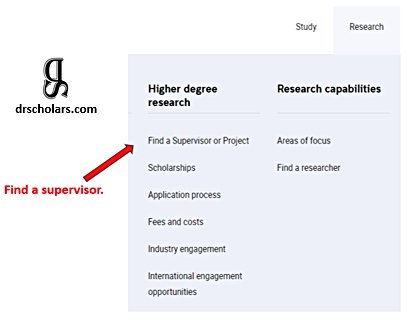
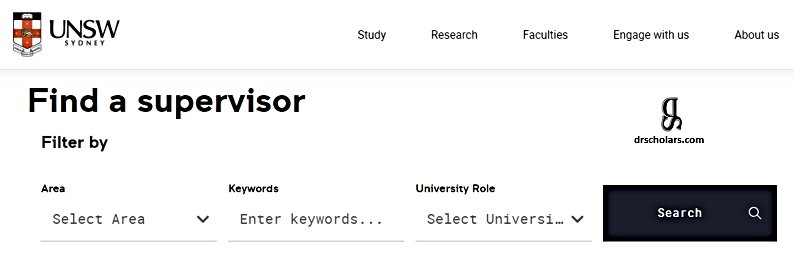
6.3. Prepare your documents for UNSW international research scholarships
See the Document Submission Guidelines before applying for the UNSW international scholarships.
students are also encouraged to prepare the documents list mentioned above.
You will be asked to submit scanned copies of documents with the online application. Prepare all your original documents before going to the UNSW as they might ask you for it before the enrolment, so it is better to bring original documents with you.
Visit each faculty for their required guidelines:
- Faculty of Arts, Design & Architecture
- Faculty of Engineering
- Faculty of Law & Justice
- Faculty of Medicine & Health
- Faculty of Science
- UNSW Business School
- UNSW Canberra
6.4. Submit an application
After you are done with the interview and research plan, and all of your documents are prepared and verified then you are ready to finally submit an online application through UNSW Apply Online.
Make sure to choose the program in the same school where your supervisor is. Confirm the right program code by contacting the supervisor or through this UNSW Handbook.
You can submit only one application at a time.
Note: All the applicants should keep enough time between their term start date and their offer receipt so that they can do everything needed to move to Australia like visa, travel etc.
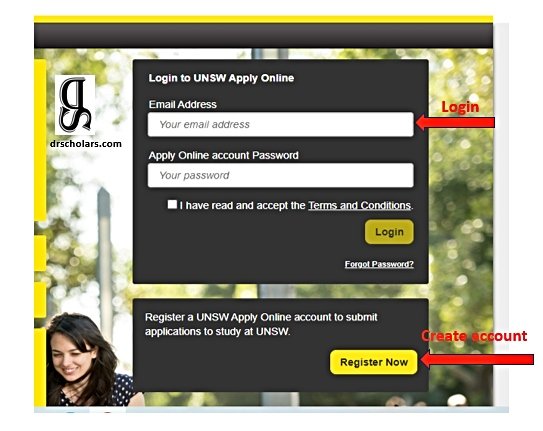
7. What are the deadlines for UNSW international research scholarships?
The deadline for UNSW international scholarships 2023/2024 for all international scholarships is 22 September 2023.
8. FAQs about UNSW international research scholarships?
8.1. Is IELTS compulsory for UNSW scholarships?
A: Yes, an English Proficiency certificate is a must and we have mentioned the complete details above in section 5.3.
8.2. Does UNSW provide scholarships on academic records only?
A: No, UNSW doesn’t give scholarships only on grade, as they value leadership skills, extracurricular interests, and applicants’ passion to study with them. Everyone is eligible for UNSW international scholarships as long as they are international students.
8.3. Is UNSW expensive for international students?
A: Yes, it is expensive for international students but not if they are doing part-time jobs. It would cost around A$25,000 or A$26,000 per year as an international student.
8.4. What is the acceptance rate at UNSW for international students?
A: The acceptance rate for UNSW is 60% which could vary from program to program and course to course.
9. Conclusion
UNSW international research scholarships offer amazing opportunities for international students who want to do their research at one of Australia’s leading universities.
These scholarships offer financial benefits as well as some other benefits which allow the students to focus on their studies only and contribute to the advancement of their knowledge in their chosen field.
For successful selection, applicants should have a strong academic background and good research capability.
UNSW’s vision is to make a diverse and inclusive research community, by bringing together individuals from around the globe to collaborate and offer their contributions in their respective fields.
So, don’t miss out on this amazing opportunity as the deadline is just around the corner. Apply now to study in Australia with a fully funded scholarship!
We cover everything in detail, but if you still have any questions, don’t hesitate to ask us in the comments.
